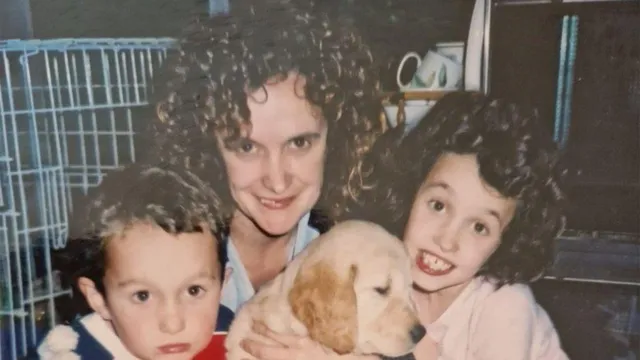The Hidden Scars: How the Post Office Scandal Devastated the Lives of Children
The Hidden Scars: How the Post Office Scandal Devastated the Lives of Children
The Post Office scandal, a dark chapter in British history, has primarily focused on the wrongful convictions and financial ruin faced by subpostmasters. However, a recent report has shed a much-needed light on the profound and often devastating impact this injustice had on the children of those affected. For many young lives, the scandal meant not just the financial hardship and public shame endured by their parents, but also personal trauma, psychological distress, and a lost sense of security and normalcy.
One of the most heart-wrenching accounts comes from Millie Castleton. At just eight years old, her world was turned upside down when her father, Lee Castleton, the subpostmaster in Bridlington, Yorkshire, was accused of theft and dishonesty. The family was ostracized, branded as “thieves and liars” within their own community. This public condemnation, coupled with the uncertainty and stress at home, cast a long shadow over Millie’s childhood. Nearly a decade later, the scars remain visible. Millie shared with the official inquiry that a part of her still feels “broken,” haunted by a lingering voice that suggests her family’s past will forever define her. The bullying she endured at school, the development of an eating disorder, and her eventual decision to drop out of university are stark testaments to the deep emotional and psychological toll. Even at 29, trusting others and seeking help feels like a monumental task, a constant battle against the ingrained feeling of unworthiness stemming from the scandal.

Millie’s story is not an isolated incident. Hundreds of other children faced similar ordeals. They experienced the painful reality of their parents being shunned, the anxiety of financial precarity, and the emotional breakdown of their families under immense pressure. The report details the experiences of other families, revealing a pattern of profound disruption and suffering among the younger generation.
Janine Powell’s 10-year-old daughter, for instance, was sent to live with a friend after Janine, a subpostmistress in Devon, was convicted and imprisoned. The separation from her mother, the upheaval of changing schools, and the deep unhappiness in her new environment resulted in significant mental health struggles for the child. Similarly, Robert Thomson from Scotland reported that his children, aged 10 and 13 at the time, were subjected to teasing and bullying at school. The immense shame and embarrassment also led his wife to become reclusive and depressed.

The ripple effect of the scandal extended to familial relationships. Mahesh Kumar Kalia described his family as becoming “dysfunctional,” with his parents’ relationship deteriorating into a “toxic and turbulent” state following his father’s conviction. The estrangement between Mahesh and his father lasted 17 years, highlighting the long-lasting damage inflicted by the false accusations. “We will never get back this time,” Mahesh lamented, underscoring the irretrievable loss of precious family time.

In response to these harrowing accounts, the government has announced plans to establish a compensation scheme for “close family members” who suffered serious adverse consequences due to the scandal. While this recognition is a step forward, details regarding the scheme’s operation and timeline remain unclear. Rebekah Foot, founder of the charity Lost Chances, which supports children of wronged subpostmasters, expressed a hope that compensation could facilitate a return to education or provide access to much-needed therapy. Her own experience, where she spent her teenage years caring for five siblings and working weekends while her mother became a recluse, speaks volumes about the lost childhoods many endured. The charity is actively involved in shaping the new compensation scheme, aiming to ensure that the profound losses, such as the “loss of childhood,” are adequately addressed.
Experts like Professor Richard Moorhead from the University of Exeter acknowledge the “heartbreaking” nature of these children’s stories. While compensation cannot undo the past or reclaim lost time, he believes it can make a “substantial difference” in improving the future prospects of those affected. The acknowledgment of these hidden costs is crucial, offering a glimmer of hope for healing and recovery for a generation profoundly impacted by one of the UK’s most significant miscarriages of justice.
Post Comment